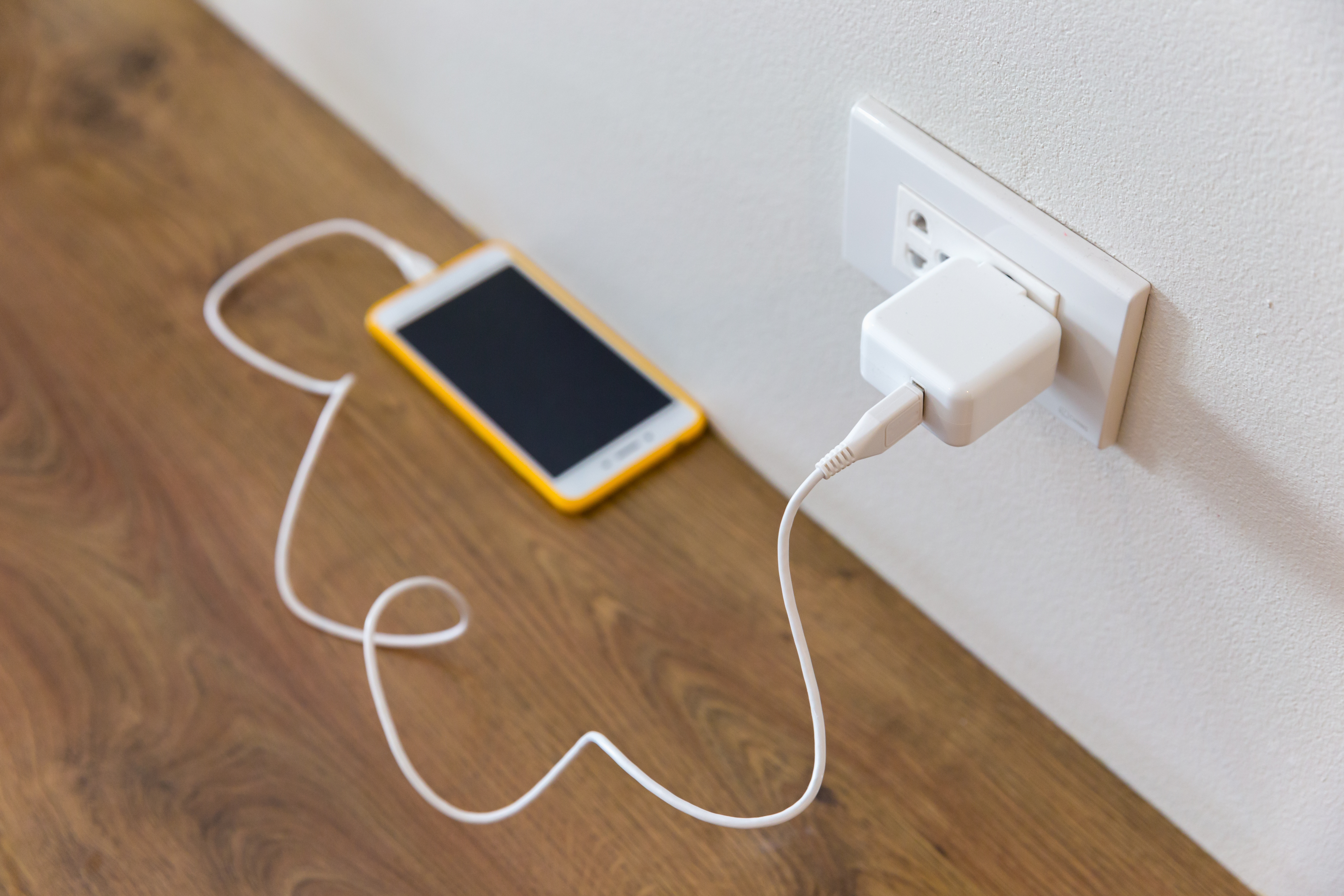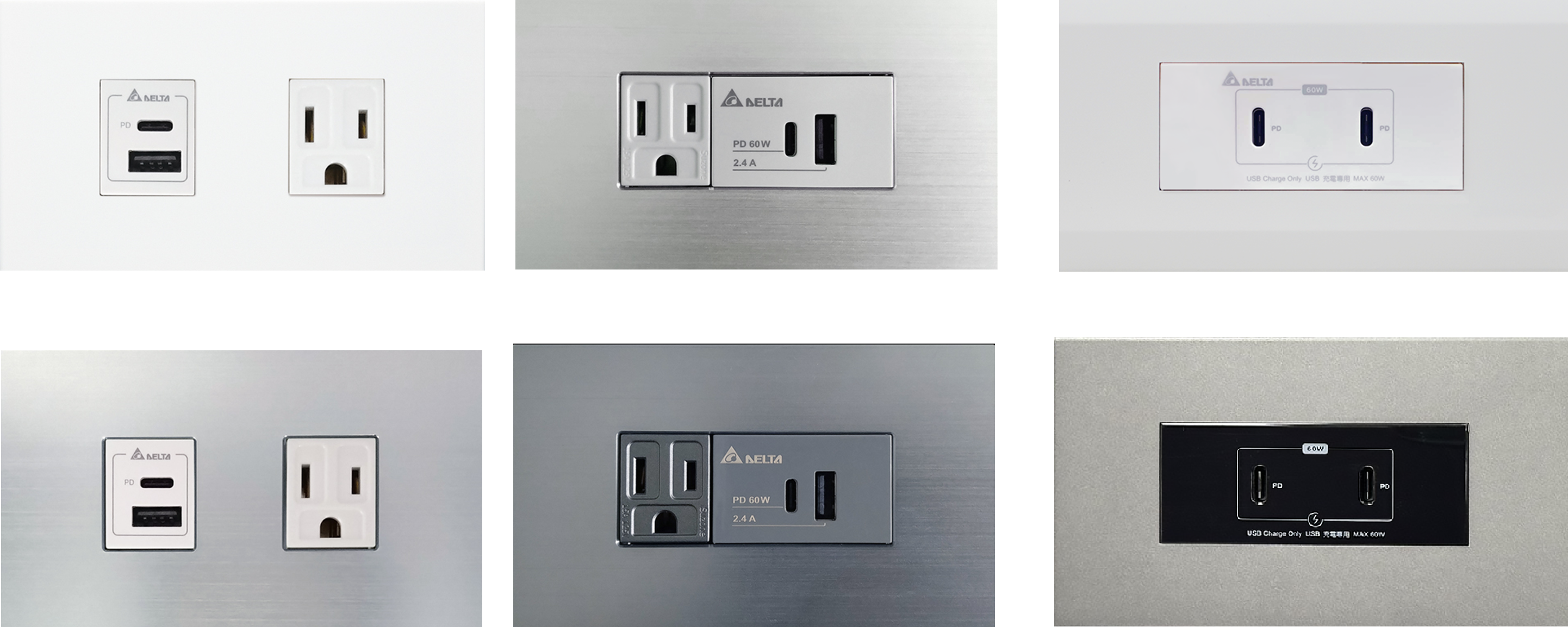12/29/2023
Less Chargers, More Convenience! Delta USB Socket outlets Fast Charge Your Devices with Cables Only
Electricity is the essential requirement for energizing equipment and devices in the modern era. One of the keys to connecting electric appliances with AC mains is the electric sockets that today we see everywhere. The history of sockets goes back to the late 19th century, when electricity was primarily used for household appliances. To ensure the safety of electric power distribution, 2-pin plugs and sockets were first introduced and gradually adopted throughout the world. Soon after, the 3-pin earthed plug came out to mitigate risks from lightning strikes or fire hazards.
Most sockets today predominantly feature two or three AC ports, which deliver AC electricity directly to the plug, meeting power demand of household appliances that adopt high-torque motors or require high-power consumption. Over the past few years, the demand for Type-C ports has seen a surge due to the proliferation of USB PD fast-charging standard applications. Leveraging its advanced technologies and collaborating experiences with clients, Delta launched the latest USB dual-port socket outlets to meet this growing demand.
The Rising Demand for the USB PD Standard and Type-C Port
The USB PD standard was first introduced by the USB Implementers Forum in 2012, and several versions of the standard have been released since then. Today, the USB PD specification, along with Type-C connectors, is widely applied in charging portable devices such as smartphones, tablets, wireless earbuds, and laptops. Many hand-held electric appliances, such as fans, desk lamps, and juicers, also support this standard. Even Apple, the renowned tech company that had long adopted lightning ports on its products, began converting to Type-C connectors this year. Currently, the main way to charge a Type-C device is to connect an AC outlet with a charger. When users need to charge multiple devices at the same time, they might require more than one charger, prompting significant inconvenience, especially when AC ports are blocked by larger plugs or occupied by other appliances.

【
Charging a Type-C device requires the connection to an AC port via a charger, occupying the limited space on the sockets.】
New USB Socket outlets Bring Convenience
Delta has been paying close attention to the development of the PD fast-charging standard and technology while exploring its potential applications and markets. Through the R&D process and business collaboration, the development team members noticed the frequent inconvenience of plugging chargers into AC ports. This prompted them to conceive of adding USB ports to wall sockets, providing more user-friendly and intuitive charging without chargers. The similarities of wall sockets and adapters, such as high power density requirements, natural convection due to limited space, and others allow Delta, which possesses cutting-edge adapter technologies, to launch the latest USB Socket outlets.
These USB Socket outlets feature three models: 20W Type-A+C, 60W Type-A+C, and 60W Type-C+C. A single Type-C port provides maximum power of 20W and 60W with an efficiency of up to 92%, lowering unnecessary power consumption. The USB Socket outlets also feature modular designs, allowing AC ports to be retained partially or to be replaced completely. Another advantage of these USB Socket outlets is their compatibility with different socket clips to ensure easy installation.
Safety Assurance and the Future Development of USB Socket outlets
Safety assurance is another key focus for these USB Socket outlets, which feature five circuit protections (OCP, OVP, OTP, OPP, SCP) and comply with multiple international safety and fire prevention standards to ensure safe operation. Delta also cooperated with clients to conduct interoperability testing for the USB Socket outlets, ensuring safe charging for electric devices of various brands. The USB ports feature a durable design for 10,000 mating cycles and can be applied in homes, business and public locations, such as offices, airports, hotels, bus and train stations, cafes, and convenience stores.
Environmentally speaking, the USB Socket outlets live up to sustainable development goals. For example, the USB sockets allow users to charge devices directly with cables only, which can reduce the production of chargers. This also contributes to lowering unnecessary energy loss with less conversion and transmission processes when charging devices. In terms of manufacturing, Delta’s USB Socket outlets adopt automated production lines and recyclable materials to assure users of less waste and pollution. The concept of USB Socket outlets is relatively new to many now, but we are optimistic that it will become the primary socket type in the future. By collaborating with multiple suppliers and strategizing business models, we are planning ahead as the market matures.
 【Delta’s 60 W / 20 W USB Socket outlets provide max. 60 W / 20 W for a single Type-C port with up to 92% efficiency. They are available in several colors and feature modular design for users to flexibly match 1 or 2 AC sockets with USB ports or only USB ports.】
【Delta’s 60 W / 20 W USB Socket outlets provide max. 60 W / 20 W for a single Type-C port with up to 92% efficiency. They are available in several colors and feature modular design for users to flexibly match 1 or 2 AC sockets with USB ports or only USB ports.】